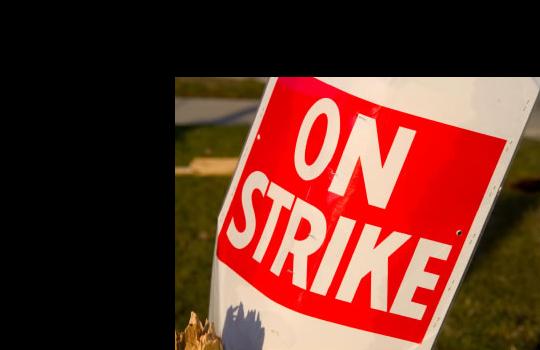Employers have urged the coalition government to stand firm in the face of an estimated two million public servants taking industrial action from 30 November over its proposed pensions revamp.
After delegates voted unanimously in favour of coordinated action at the TUC conference in London yesterday, 10 more unions announced that they planned to ballot their members, raising the spectre of the iconic 1978-79 ‘Winter of Discontent’.
Four unions – Unison, Unite, the GMB and the Fire Brigades’ Union – are already in the process of holding a vote, but are now being joined by others, including the Public and Commercial Services Union, the National Union of Teachers and the University and College Union.
The first “day of action” will take place on Wednesday 20 November, the day after Chancellor George Osborne unveils his autumn economic statement. Action will range from one-day walk-outs to lunchtime rallies, but is expected to include everyone from hospital and ambulance workers to prison officers, refuse collectors and police support staff.
According to the Independent, a total of 24 public sector unions also got together after the TUC conference yesterday in order to agree a detailed strategy at a “council of war”.
Brian Stutton, national secretary for public services at the GMB, said: “We are talking about something that is long and hard and dirty. We are assuming this will be a huge set-piece conflict, running for a long time.”
As a result, the unions are preparing for the “long-haul” and are expecting industrial action to run through until to next summer, potentially disrupting the London Olympics and Queen’s Diamond Jubilee celebrations.
London Underground’s 3,500 train drivers have already agreed to accept a one-off £500 payment in exchange for not going on strike during the Games, however. The train drivers’ union Aslef has likewise negotiated increased overtime payments on top of basic salaries of £42,750 if members work longer than an eight-hour shift or later than 1.30am.
But Neil Bentley, deputy director-general at employers’ lobby group the CBI, urged the coalition government to “stick to its guns on reforming public sector pensions”.
“Strikes cause major disruption for families and businesses, and mass strike action would mean thousands of parents forced to take a day off work to look after their children. We urge union leaders to get round the table with the Government and negotiate on the details,” he said.






